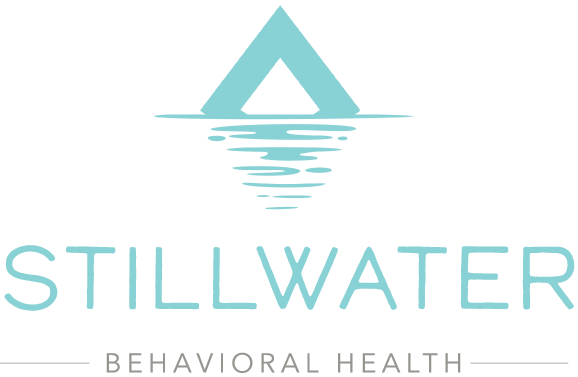Can You Overdose on Prescription Drugs?
Understanding prescription drug overdose symptoms can save lives. Read on in this article.
Table of contents
- What Is Prescription Drug Overdose?
- What Causes Someone to Overdose on Prescription Drugs?
- How Much Prescription Drugs does it Take to Overdose?
- What Happens to the Body During Prescription Drug Overdose?
- What Should You Do If You Think Someone May Have Overdosed on a Prescription Drug?
- Are There Treatments for Prescription Drug Overdose?
- Resources
What Is Prescription Drug Overdose?
Millions of people die from prescription drug overdose every year. Preliminary prescription drug overdose statistics from the Centers for Disease Control and Prevention found that more than 100,000 people lost their lives to drug overdose in the United States between April 2020 and April 2021. This number represents an increase of nearly 30% over the same period during the previous year.1
Because drug addiction knows no limitations, the impacts of death from prescription drug overdose touch members of all demographics and all parts of the nation. An overdose occurs when someone takes too much of a particular substance and can occur as either accidental or intentional misuse.2
Questions about addiction?
Call Us Now: 1-866-232-9103
Your call is confidential with no obligation required to speak with us.
Accidental and Intentional Misuse
An accidental overdose occurs when a person unintentionally takes too much of a prescription drug. This can happen when someone forgets when they took their last dose, forgets how much to take, or combines a prescription drug with an over-the-counter medication that contains similar ingredients. An intentional overdose occurs when a person takes too much of a substance on purpose.
It is important to mention that overdose is not the same as prescription drug poisoning. Although the effects may be similar, poisoning occurs when someone is exposed to a dangerous substance (in this case, prescription drugs) without their knowledge.
What Causes Someone to Overdose on Prescription Drugs?
Overdosing on prescription drugs can happen all too quickly. As mentioned, an overdose can be accidental or intentional. When someone takes a prescription, they are provided with a specific recommended dosage. For example, depending on the medication, they may take it once a day or several times each day.
Someone can forget their dosing schedule or struggle to remember when they last took their medication. Medication overdose frequently occurs in seniors or others who struggle with cognitive function. It is not uncommon for these individuals to take their medications too often or in larger doses than recommended leading to a med overdose.
It is also possible for someone experiencing chronic pain, difficult mental health symptoms, or prescription drug withdrawal symptoms to take medications too often or in unsafe doses. This type of use can occur when tolerance has started to develop and when the recommended dose no longer achieves symptom relief.
How Much Prescription Drugs does it Take to Overdose?
A significant factor that contributes to high rates of prescription overdose is unpredictability. All medications are different, and the way specific drugs affect one person will be different than their effects on someone else. Therefore, it is possible for two people to use the same drug at the same dosage and for one to experience overdose symptoms while the other does not.
Several factors influence the risk of a drug overdose, including the dosage and the time the drug remains in your body (exposure).3 Certain drugs like opioid pain killers are very strong, so it is common for people to underestimate the intensity of their effects until they are already at risk for overdose (OD). Also, some prescription pain killers remain in a person’s system for several hours, meaning it is possible to take another dose while the body is still managing the effects of a previous dose. This often occurs when someone has used a particular drug regularly for some time and has developed a tolerance to the effects of the drug.

Prescription Drug Overdose Statistics
The Centers for Disease Control and Prevention (CDC) reported that nearly seventy-one thousand people died from an opioid overdose in 2019. Opioid painkillers such as morphine, codeine, and oxycodone are responsible for a significant portion of the total death rate. Overdose rates from depressant and stimulant abuse and misuse are also a problem in many states. The CDC indicates that approximately ten thousand people died from a depressant overdose, and another fifteen thousand overdosed on stimulant drugs.4
What Happens to the Body During Prescription Drug Overdose?
The signs of a prescription drug overdose may look different depending on the substance and the person. Various drugs are associated with different symptoms and prescription drug overdose. Therefore, it can be challenging to determine if a friend or loved one is overdosing or if their symptoms represent the drug’s desired effects.
Signs of a prescription drug overdose will be present across many-body systems. Because many drugs travel throughout the body, the effects of the drug impact all major vital organs, including the brain, heart, lungs, and blood. It is not always easy to separate the symptoms of drug overdose from the signs of drug abuse; however, understanding what happens to the body during overdose may help a person save the life of a friend or loved one.
Impact on the Body
Many prescription drugs travel throughout the bloodstream. Because of this, a common sign of prescription drug overdose is reduced heart rate and blood pressure or elevated heart rate and blood pressure, depending on the substance taken. Additionally, prescription drugs have a significant impact on the respiratory system.
Depending on whether the drug was a stimulant or a depressant, one may experience increased respiratory rate or a dangerously slowed respiratory rate. Common signs of drug overdose often include cardiac arrest, respiratory arrest, and coma, which frequently arise from significant changes in vital body functions. The brain and central nervous system are also adversely impacted by prescription drug overdose.
What Should You Do If You Think Someone May Have Overdosed on a Prescription Drug?
If you think someone may have overdosed on a prescription drug, it is essential to stay with them while waiting for emergency services to arrive. The first step is to call 911 immediately. Failure to seek help for someone you believe may have overdosed could lead to death.
It is also essential to know the signs of a prescription drug overdose so you may know when someone needs emergency help. Again, different drugs produce different symptoms of a prescription drug overdose. However, several common symptoms occur regardless of the substance. These include shallow breathing, clammy skin, erratic or slowed heart rates, stomach problems, altered levels of consciousness, and difficult or slowed breathing.
It is also important to understand Good Samaritan laws. These laws are in place in virtually every state to ensure that someone who tries to help a friend, loved one, or stranger in the event of a drug overdose cannot be held liable if that person experiences a medical emergency, injury, or dies.

Are There Treatments for Prescription Drug Overdose?
Overdosing on pills or experiencing a medication overdose requires immediate medical intervention. The first step for someone who experiences medication overdose is to detox and cleanse their system of the substance. This often occurs in a hospital environment. Depending on the situation, it may take a few days before it is safe to transition to a therapeutic program to address potential addiction treatment needs.
How Can You Prevent Prescription Drug Overdose?
Educating yourself about addiction and the potential ways overdose can occur may help prevent prescription drug overdose. If you struggle with an addiction, it is essential to seek help at a professional treatment center like Stillwater Behavioral Health. During an inpatient or outpatient treatment program, you will participate in various therapies designed to help you understand the roots of addiction and addictive behaviors. As part of therapy, you will also learn and practice essential and potentially life-saving coping skills you can use when faced with triggers or urges to take prescription medications to self-medicate.
Understanding prescription medication addiction is the first step towards preventing overdose. If you or a loved one struggles with an addiction to prescription drugs, contact us at Stillwater Behavioral Health today to learn more about how our programs can help you start on your journey to sobriety and lasting wellness.


